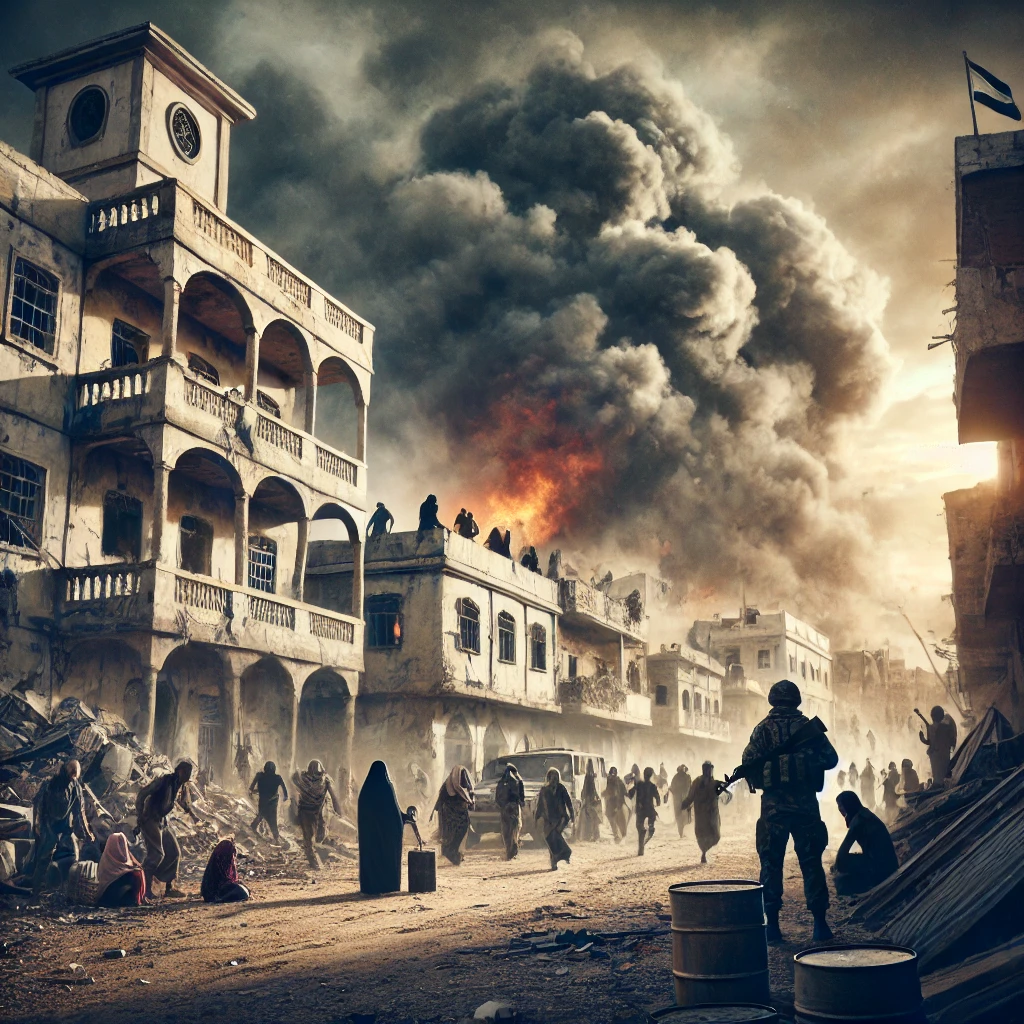UN Urges Justice for Suweida Killings Amid Syria’s Fragile Transition
Türk warned that failure to respond to the atrocities in Suweida with transparency and justice would derail the hopes for a new, rights-respecting Syria.

The United Nations has issued a strong call for justice and accountability in the wake of alarming reports of widespread human rights abuses in Syria’s southern city of Suweida, a predominantly Druze region, where violence has surged dramatically since mid-July. UN High Commissioner for Human Rights Volker Türk has urged Syria’s interim authorities to ensure that justice is served for the hundreds of people killed and displaced and that all perpetrators—regardless of affiliation—are held accountable in accordance with international law.
This latest eruption of violence underscores the precariousness of Syria’s transitional moment, coming after the fall of the former government and during a period of fragile optimism for reform. Türk warned that failure to respond to the atrocities in Suweida with transparency and justice would derail the hopes for a new, rights-respecting Syria.
Widespread Human Rights Abuses Documented
According to credible reports received by the UN Human Rights Office, a wide range of gross violations and abuses have taken place since 12 July 2025, including:
-
Summary executions and arbitrary killings
-
Kidnappings and enforced disappearances
-
Looting and destruction of private property
-
Cultural humiliation, notably the public shaving of a Druze man’s moustache—a symbol of dignity in Druze tradition
Among the perpetrators were reported to be members of Syria’s interim security forces, individuals affiliated with local authorities, and other armed groups in the region, including members of both Druze and Bedouin communities. The violence has triggered mass displacement, causing widespread fear and destabilization across the governorate.
In a particularly horrific incident on 15 July, armed men reportedly opened fire on a family gathering, killing at least 13 people, and later executed six more men in two separate locations. These killings, which were deliberate and unprovoked, add to the hundreds of deaths documented since the outbreak of violence began.
UN Condemns State and Non-State Actors Alike
High Commissioner Türk emphasized the obligation of State security forces to protect—not terrorize—civilians.
“The deployment of State security forces should bring safety and protection, not add to the fear and violence,” he said.
Türk called for independent, prompt, and transparent investigations into all incidents of abuse and a thorough vetting of individuals currently being integrated into Syria’s official military and security forces. He underscored that impunity must not be allowed to continue, as it would only fuel cycles of violence and retribution.
“There must be independent, prompt and transparent investigations into all violations, and those responsible must be held to account, in accordance with international standards,” Türk insisted.
Incitement and Cultural Harm: A Dangerous Trend
The UN Human Rights Office also expressed deep concern over incitement to violence and hate speech, both online and offline, warning that such rhetoric escalates tension in already fragile communities.
The targeting of Druze cultural symbols, like the forcible shaving of moustaches, has struck a particularly painful chord, contributing to a climate of humiliation and cultural erosion. Such acts, though symbolic, are deeply traumatic and have compounded the region’s unrest.
Israeli Airstrikes Also Under Scrutiny
In addition to internal violence, Türk highlighted civilian casualties caused by Israeli airstrikes in Suweida, Daraa, and Damascus.
“Attacks such as the one on Damascus on Wednesday pose great risks to civilians and civilian objects. Such attacks must cease,” he said.
This statement reflects the increasing toll of regional conflict spillovers on Syria’s already devastated civilian population and adds another layer of complexity to an already volatile security environment.
Transitional Justice and National Reconciliation
To restore public trust and lay the groundwork for long-term peace, Türk stressed the need for a credible transitional justice process. This includes:
-
Publishing the findings of the national fact-finding committee’s investigations into prior violence in Syria’s coastal regions
-
Establishing a comprehensive, independent vetting mechanism to prevent rights violators from entering public service
-
Ensuring inclusive participation of all communities in justice and reconciliation efforts
“Impartial and thorough investigations into the recent violence would also strengthen the ongoing wider transitional justice process to ensure accountability for past violations and abuses,” said Türk.
He reiterated the importance of truth, justice, and non-recurrence, calling on interim authorities to prove that Syria’s new chapter will be defined by equal protection, human dignity, and non-discrimination.
The Path Forward: Responsibility Lies with the Interim Authorities
With the collapse of the previous regime, Syria finds itself at a crossroads. The international community has long awaited signs that a new Syria—built on inclusion, justice, and accountability—might emerge. According to Türk, the interim authorities now bear the full responsibility of proving that promise was not in vain.
“With the fall of the former government, Syrians have witnessed a moment of hope for a better future based on human rights. It is the responsibility of the interim authorities to demonstrate that this chapter will be defined by rights, justice, and equal protection for all,” he concluded.
As reports continue to surface and more victims come forward, the world is watching to see whether Syria’s interim leadership will confront its past with honesty—or repeat the same patterns of abuse that led to its suffering.
ALSO READ
Kerala's Waqf Transformation: UMEED Portal Promises Transparency and Accountability
Supreme Court Demands CBI Accountability in Indiabulls Case
Justice Delayed: Owaisi's Call for Accountability Post-2006 Mumbai Blasts Acquittal
Syrian Defense Ministry Vows Accountability After Reports of Military Abuses
Syria's Ongoing Struggle: A Complex Web of Violence and Accountability










